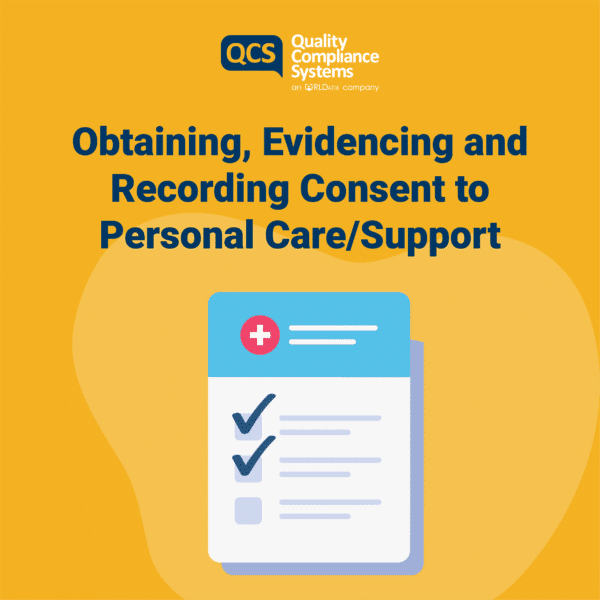Consent is an integral part to bespoke, person-centred care delivery. Without it, you simply aren’t providing a person-centred service. That said, consent is not always a straightforward process; there are other factors such as mental capacity to consider. The CQC clearly states that ‘providers must not provide unsafe or inappropriate care just because someone has consented to care or treatment that would be unsafe.’
Evidencing Consent
So how do we evidence consent has been given and that we have acted within our duty of care to provide a supportive and caring service to the individuals we help? Firstly, it’s essential that this is established at the outset as early as during the first enquiry, at the initial assessment and most importantly, before any formal contract is signed.
From that very first email or telephone call, establish who is making the enquiry, their relationship to the prospective service user (if it is not the service user themselves) and if they have their consent
- If the person enquiring is not the prospective service user, do they hold Lasting Power of Attorney for Health and Welfare and Financial Affairs?
Some Crucial Points About Consent:
- Is it valid?
- Is it voluntary and informed?
Consent isn’t always formal consent and just as importantly, informing an individual of what you are doing and why is basic courtesy and humanises their experience. The last thing providers want is to have staff who deliver care by treating individuals as nothing more than a piece of meat, doing the tasks like a robot and then moving on to the next.
Consent and being informed is crucial to delivering great care and the reasons why should be clearly apparent to all the staff in your organisation.
Let’s make sure we continue to gain and evidence consent throughout the whole care experience by embedding it into our company culture.
For our Service Users:
- Individuals receiving care and support should be actively encouraged to develop their own tailored care plan with the understanding that it can be changed at any time
- The care plan should clearly evidence that consent has been obtained from either the service user or their legal representative, or that a decision has been made in their best interests if appropriate
- Providers should keep full records of completed mental capacity assessments and revisit them regularly
- Ensure that evidence of DoLS assessments has been logged
- Ensure that information is distributed to individuals in an accessible format – people cannot consent if they cannot understand what is presented to them easily
- A discussion around advance care planning and DNACPR (do not attempt cardiopulmonary resuscitation) should be, at the very least, offered to service users, especially if they have fluctuating capacity; this will help in maintaining their wishes later on
How can we support staff to ensure that consent to care/support happens?
- Staff should receive sufficient and informed induction and training that provides them with the awareness they need to understand consent and mental capacity
- Consent should be part of daily practice and integral to the care and support delivery; staff should be taught how to reflect this in the daily care record notes
- Use real life examples of what it would be like to be cared for without consent and what that looks like so staff understand the difference
- Consent can be demonstrated during spot checks, working observations
- Follow up with consent during staff 1:1s
What can providers do to monitor the evidence of consent?
- Conduct regular audits
- Have detailed and relevant polices and procedures surrounding the topic
- Ensure that you complete your various methods of regular staff supervisions
- Quality assurance with service users and/or their representatives
- Training Matrix
It’s immeasurably important that all staff understand that what someone likes today may be different tomorrow. Years ago, I watched a video of a man being interviewed about his experience in a care home. He was asked during his assessment what he liked for breakfast, and he said ‘porridge’. From that day on he was given porridge every day without ever being asked if he’d like a change today. A simple, ‘Is it the usual?’ would suffice and would have afforded him that significant opportunity for his choice and consent.






